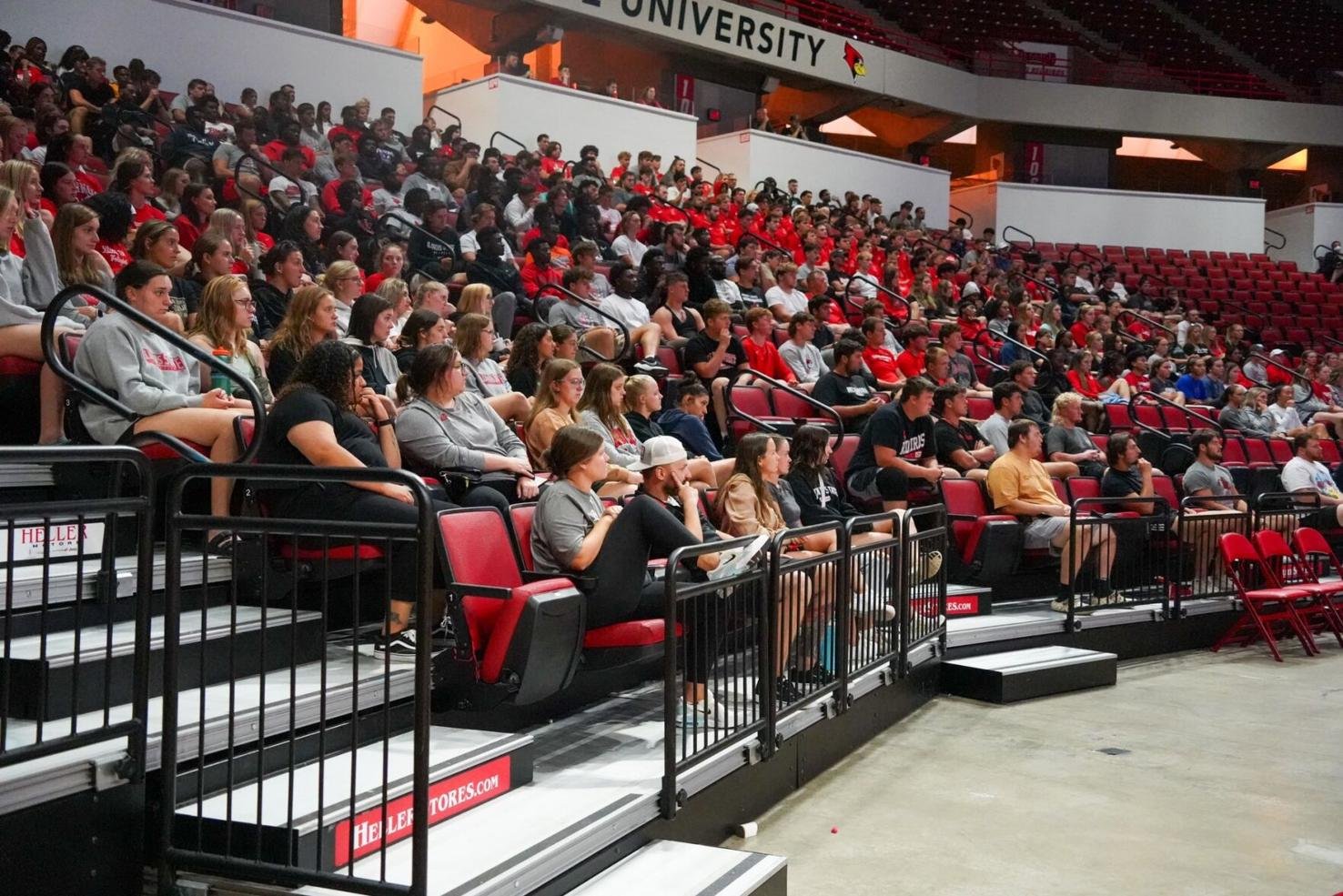Hilinski's Hope works to break stigmas, open conversations for ISU student-athletes
Vidette Online
No one knew that Tyler Hilinksi was struggling with mental health.
The Washington State quarterback died by suicide in January of 2018. Now his parents, Mark and Kym, look to forward the conversation on student-athlete mental health through the Hilinski's Hope Foundation.
"The thing we've learned is if this can happen to Tyler, it can happen to anybody. Meaning, we've ruled out all the things that a lot of the kids would ask about, you know. Did he have a girlfriend problem? Was he on drugs? Was he struggling with his identity?" Mark Hilinski said. "Just like, 'This is why I had to go.' But we don't have any of those things."
The Hilinskis "Tyler Talks," like Illinois State hosted Monday at CEFCU Arena, tell Tyler's story and get the conversation started.
"If it helps one person tonight avoid suicide or avoid a struggle with mental health or helps them help a teammate or roommate or brother or sister, then it's all worth it," Mark Hilinski said in an interview just before the event.
Tyler Talks are not recorded to ensure student-athletes feel comfortable discussing mental health. Monday, there was a line of student-athletes waiting to talk to Mark and Kym that spanned the entire basketball court.
ISU quarterback Zack Annexstad understands the challenges of speaking out about mental health.
"It's not easy because, for lack of better words, you don't wanna look soft. You don't want to appear to your teammates a lot of times — man or woman — that you kind of have some, like, insecurities. Whatever that looks like. So, I think that's kind of what makes it hard," Annexstad said.
One of the challenges for student-athletes is balancing their sport with everything else they have going on.
"You don't see the balance of school, football, whatever your sport is, family, life friends. You the balance of all that, how much that all weighs on you. You just kind of see the highlights, you see whether someone performs really well on Saturday or whatever day you're playing," Annexstad said. "The process leading up to the highlights that we see gets kind of lost."
For ISU's Student-Athlete Advisory Committee President Kaitlyn Donovan, the connection to the Hilinski's story was clear.
"We are in the same boat as Tyler. Tyler was a college athlete just like all of us. And a lot of us don't realize that it is a serious thing that needs to be discussed," Donovan said.
Knowing the impact they have, it can be hard for student-athletes to speak up.
"When I was younger and I was going to college athletics events I was like, 'Oh I want to be her when I grow up. I want to do Division-I gymnastics like her when I grow up.' So, it's hard to recognize that college athletes can struggle and still be those leaders that we see in the community," Donovan said.
The Hilinskis have given over 170 Tyler Talks. While each talk is unique, the student-athletes in the audience are consistent in their demeanor.
"They lean in. They're not on their phones, they don't fall asleep. They're truly, truly listening. And I think they do that because they care about one another. They care about their teammates and they do realize, hopefully, that they have to take care of their mental health because it does matter," Kym Hilinski said.
A key point in Monday's Tyler Talk was for student-athletes to avoid soldiering on through mental health struggles.
"You don't need a tragedy to ask for help," Mark Hilinski said. "Our student-athletes go, 'Well I can deal with that. I got this, I can figure it out.' Which is true for a lot of things. But not mental health illnesses that are out of your control."
Along with Tyler Talks, Hilinski's Hope creates resources for student-athlete mental health. ISU uses Hilinski's Hope: Game Plan, a comprehensive program for student-athlete mental health. Recent fundraising efforts have helped allow ISU Athletics' to offer additional mental health resources for student-athletes.

